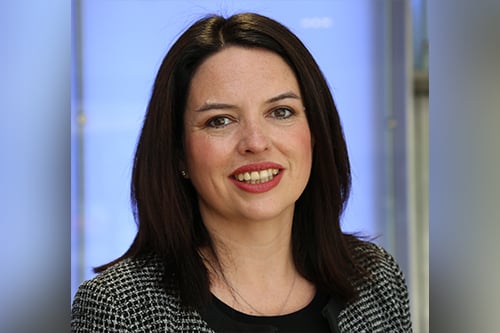

“It will be interesting to see how history records the events of 2020, arguably nothing will quite be the same when all of this is over.”
In a recent interview with Insurance Business, Sarah Mallaby (pictured), the director of broker markets for Allianz, outlined how the main challenges facing the insurance sector during the coronavirus (Covid-19) outbreak are multi-faceted and wide-ranging. At the moment, she said, there is clearly a reputational issue as the insurance industry is viewed as one homogenous body despite the wide range of products offered.
“Underwriting processes for lines of business are different and will vary between insurers but for people outside the industry this is not immediately clear and can cause upset and confusion,” she said. “I would hope that over time the narrative will change, however, we will have work to do to prove to some customers why insurance is still relevant and important.”
Maintaining high levels of customer service is critically important, Mallaby noted, and she highlighted that although there are online solutions for buying or renewing policies or starting claims, many customers still want to speak to their broker or insurer. Thus it is really important not just that the platforms are there to do this, she said, but also that frontline staff have the support they need to look after their own mental health and general wellbeing, and are enabled to meet customers’ needs in this extraordinary time.
Mallaby believes that the coronavirus pandemic has a role in emphasising the need for insurers and brokers to create and maintain excellent working relationships. For clear lines of communication and the best customer outcome, she said, it really helps if brokers and insurers have built up relationships of trust, respect and understanding.
“Ultimately we all want our customers to be happy with the products they’ve purchased, the advice they’ve been given and the claims service they’ve received,” she said. “Sometimes, however, difficult conversations do need to take place and that’s where a good partnership is really important between insurer and broker, so that all information is accurate, up to date and clear and creative solutions are found for the benefit of our mutual customer wherever possible.”
Communicating with its broker partners has been of utmost importance to Allianz over the past few weeks, Mallaby said, and will continue to be so as the situation continues to unfold. She highlighted how this communication has taken place through a variety of channels and the work that has been done to ensure that individual relationships haven’t been affected as businesses throughout the UK and globally have moved to remote working.
“We’re doing everything we can to make sure our normal levels of great service still stand and we’re analysing feedback and queries from brokers in a special working group to make sure that we’re responding to issues as quickly as possible,” she said. “We do have strong relationships with our brokers but we’re not complacent. We are constantly looking at new and creative ways that we can engage with brokers in order to strengthen relationships further and improve our service proposition as we work our way through this difficult time.”
Each line of business is facing its own challenges, Mallaby said, and Allianz has had to review its policy wordings and trading practices to ensure it can continue to assist and support its customers in their time of need. A central challenge of the coronavirus pandemic, she highlighted, is that the situation is ongoing and new ideas are continually being examined to find ways to help customers.
“In the meantime,” she said, “we’ve taken practical steps to help customers such as extending our unoccupied property notification to 60 days, supporting volunteer responders by allowing commercial vehicles to be used with no need for notification, taking a flexible approach to change of business use and working closely with brokers to make sure that customers aren’t unintentionally uninsured by difficulties with renewals.”
Mallaby believes that a lot of insurers are doing brilliant things that might not be widely recognised yet, and she stated that this highlights the importance of sharing positive stories at this time as many of these activities fall outside the general ESG or CSR remit, and are taking place simply because they are the right thing to do in a time of crisis. For Allianz, this response has included a £100,000 donation to the Red Cross Coronavirus appeal and a £15,000 donation to the emergency response fund set up by the Community Foundation for Surrey near the organisation’s head office in Guildford.
“It’s not really about money though,” Mallaby said, “it’s about supporting customers, be that approving change of use to a building so it can be used to help the NHS, or supporting a customer change from manufacturing candles to hand sanitiser, or working with brokers to make sure that key inspections take place at night so that businesses can run smoothly during the day.”
There are so many examples of how insurers and brokers are helping customers contribute to wider society, she said, and she is sure that, as this situation continues, there will be many more examples. Mallaby hopes that the legacy of the coronavirus will be that this was a time when the insurance industry proved that it can make efficient use of technology to support its people and its customers, and how, as an industry, insurance came together where it could, with NHS volunteering being a topical example.
“The current crisis will also create opportunities to work with Government, institutions and professional bodies, so if this ever happens again we can have a greater overview of risk and how to be prepared,” she said. “Primarily our role as an industry is to enable people and this is an opportunity like no other to demonstrate that.”
